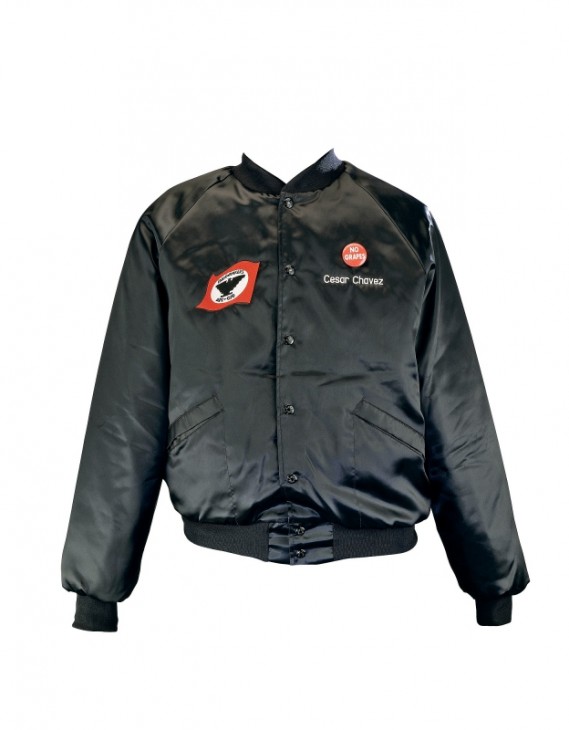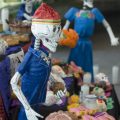Remembering an American Labor Rights Leader
This nylon jacket belonged to Cesar Chavez, a civil rights, Latino and farm labor leader who in 1962 founded the United Farm Workers (UFW) union, the first effective union of farm workers in the United States. As founder and president of the UFW, Chavez brought to light the plight of farm laborers through community organizing, marches, boycotts and fasts.
A migrant worker during his childhood, Chavez pledged his life to improving the stark conditions of farm labor. Inspired by Mahatma Gandhi and Martin Luther King Jr., he practiced the principles of self-sacrifice and nonviolent resistance while seeking justice for the poorest of America’s laborers.
Through his compassion and humble leadership, Chavez inspired millions of Americans to fight for social justice. His birthday, March 31, is an official holiday in 10 states. In 1994, he was posthumously awarded the Presidential Medal of Freedom, the nation’s highest civilian honor, by President Bill Clinton.
Chavez’s legacy will be featured in the exhibition, “American Enterprise,” which opens July 1, 2015 at the Smithsonian’s National Museum of American History.
Learn more about the UFW on the museum’s blog, “Feeding America: The people and politics that bring food to our table.”
__________________________________
Recordando a un líder de los derechos de los trabajadores
Esta chaqueta de nylon le perteneció a Cesar Chavez, un líder de los derechos civiles, latinos y de los trabajadores agrícolas que en 1962 fundó la unión de Trabajadores Agrícolas Unidos (United Farm Workers o UFW), la primera unión efectiva de trabajadores agrícolas en los Estados Unidos. Como fundador y presidente de la UFW, Chavez sacó a la luz la situación deplorable de los trabajadores agrícolas a través de la organización comunitaria, marchas, boicots y ayunos.
Chavez, quien fue un trabajador migrante durante su infancia, dedicó su vida a mejorar las condiciones de los trabajadores agrícolas. Inspirado por Mahatma Gandhi y Martin Luther King Jr., practicó los principios de auto-sacrificio y resistencia no violenta, al luchar por los más pobres de los trabajadores en los Estados Unidos.
A través de su compasión y liderazgo humilde, Chavez inspiró a millones de estadounidenses a luchar por la justicia social. Su cumpleaños, el 31 de marzo, es un día de fiesta oficial en 10 estados. En 1994, el Presidente Bill Clinton le concedió póstumamente la Medalla Presidencial de la Libertad, el honor civil más alto de la nación.
El legado de Chavez se presentará en la exposición “American Enterprise”, que se estrenará el 1 de julio de 2015 en el Museo Nacional de Historia Americana del Smithsonian.
Aprenda más acerca de la UFW en el blog del museo, “Feeding America: The people and politics that bring food to our table.”






